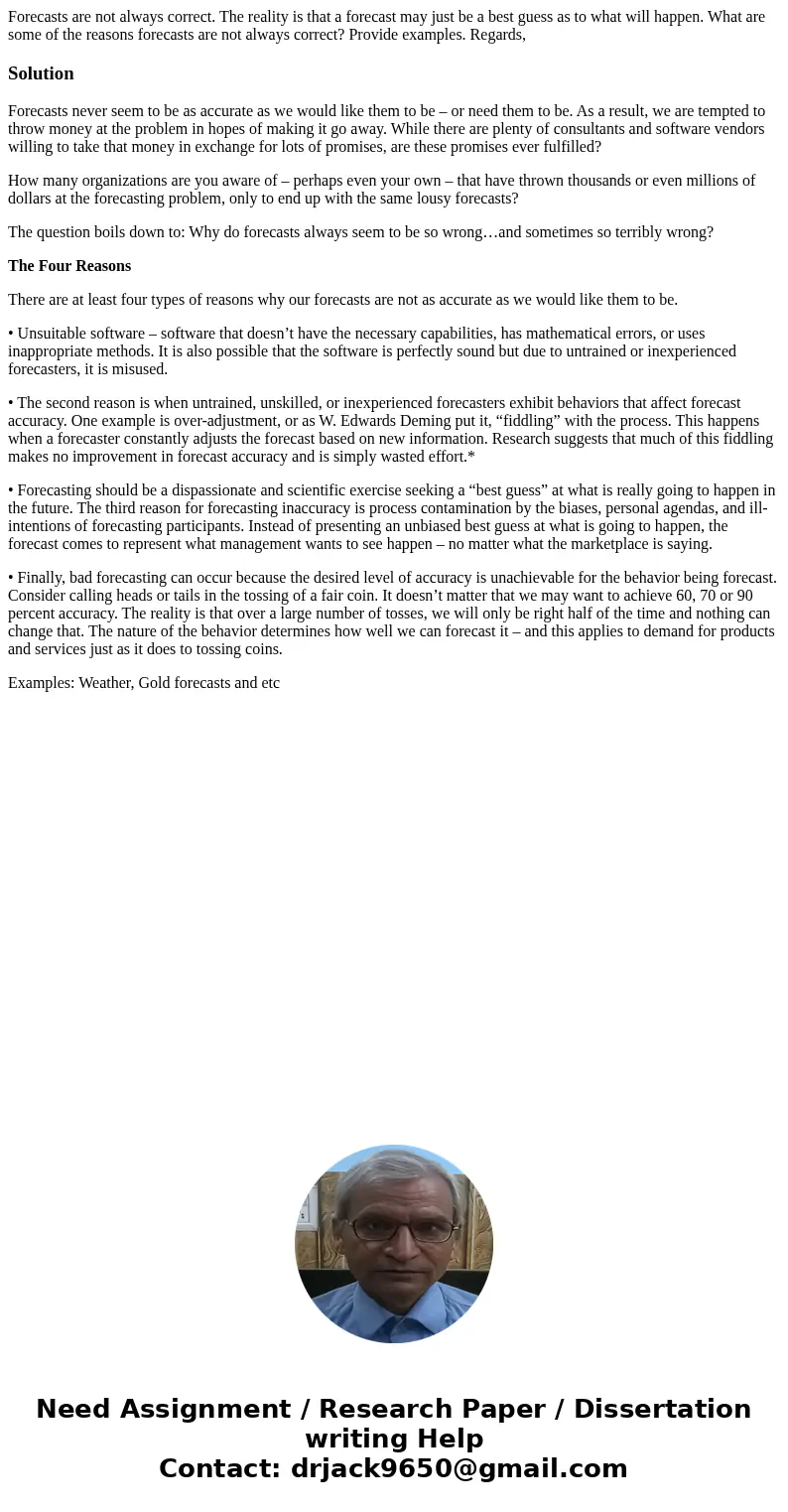Forecasts are not always correct The reality is that a forec
Forecasts are not always correct. The reality is that a forecast may just be a best guess as to what will happen. What are some of the reasons forecasts are not always correct? Provide examples. Regards,
Solution
Forecasts never seem to be as accurate as we would like them to be – or need them to be. As a result, we are tempted to throw money at the problem in hopes of making it go away. While there are plenty of consultants and software vendors willing to take that money in exchange for lots of promises, are these promises ever fulfilled?
How many organizations are you aware of – perhaps even your own – that have thrown thousands or even millions of dollars at the forecasting problem, only to end up with the same lousy forecasts?
The question boils down to: Why do forecasts always seem to be so wrong…and sometimes so terribly wrong?
The Four Reasons
There are at least four types of reasons why our forecasts are not as accurate as we would like them to be.
• Unsuitable software – software that doesn’t have the necessary capabilities, has mathematical errors, or uses inappropriate methods. It is also possible that the software is perfectly sound but due to untrained or inexperienced forecasters, it is misused.
• The second reason is when untrained, unskilled, or inexperienced forecasters exhibit behaviors that affect forecast accuracy. One example is over-adjustment, or as W. Edwards Deming put it, “fiddling” with the process. This happens when a forecaster constantly adjusts the forecast based on new information. Research suggests that much of this fiddling makes no improvement in forecast accuracy and is simply wasted effort.*
• Forecasting should be a dispassionate and scientific exercise seeking a “best guess” at what is really going to happen in the future. The third reason for forecasting inaccuracy is process contamination by the biases, personal agendas, and ill-intentions of forecasting participants. Instead of presenting an unbiased best guess at what is going to happen, the forecast comes to represent what management wants to see happen – no matter what the marketplace is saying.
• Finally, bad forecasting can occur because the desired level of accuracy is unachievable for the behavior being forecast. Consider calling heads or tails in the tossing of a fair coin. It doesn’t matter that we may want to achieve 60, 70 or 90 percent accuracy. The reality is that over a large number of tosses, we will only be right half of the time and nothing can change that. The nature of the behavior determines how well we can forecast it – and this applies to demand for products and services just as it does to tossing coins.
Examples: Weather, Gold forecasts and etc

 Homework Sourse
Homework Sourse